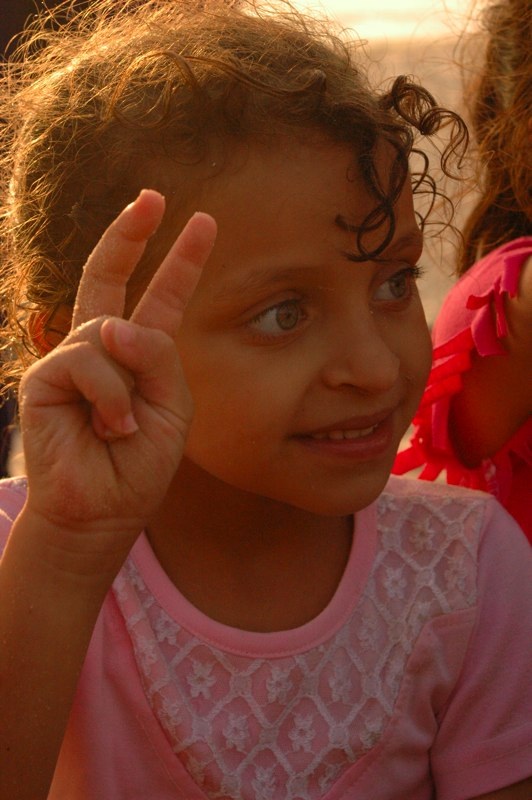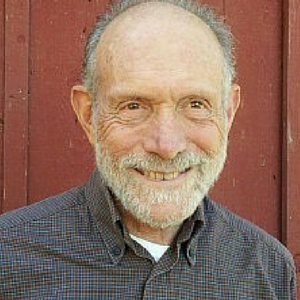
Revised January 14, 2009.
I have just gotten off the phone with my friend and colleague Oren Yiftachel, a co-founder, with Dr. Eyad El Sarraj of Gaza, of the Faculty for Israeli-Palestinian Peace. Prof. Yiftachel lives and works in Beer-Sheva, which is within range of the Qassam rockets coming from Gaza. Yet when I asked him what the Israeli peace movement was doing to stop the counterattacks he said simply, “not enough.” The same is true here, even 7,500 miles away in West Marin.
There is another lesson or two for those of us who work for peace and believe in it: we have to do much more, both quantitatively and qualitatively. That is, we need to understand more things to do and when to do them, for if the last eight years’ wars have shown us anything, it is that protests aren’t enough. There is a time for protests and vigils. This isn’t one of them. We need direct action, not excluding, when all else has failed, downright civil disobedience, coupled with vigorous development and promotion of peace alternatives to replace what we — all of us — must now decisively reject: the starving of a whole population, the bombing of civilian neighborhoods in order to ‘target’ individuals within them. In the final analysis, we need to reject war as an instrument of peace.
Neither Oren nor I were able to reach our mutual friend El Sarraj, a psychiatrist and co-founder of the Gaza Community Mental Health Programme — the facility had been heavily damaged by bombing the night before. But on the latter’s recent blog he described the terror of his children as the U.S.-made bombs fell perilously near his home. Sitting comfortably here in Tomales, it made me very angry. I am not sorry that it did. If more of us were angry and had a constructive way to turn our anger into the ingredients of a saner future, namely by nonviolent methods, there might be a silver lining even in this disgraceful episode.
I have been searching desperately for some silver lining in the deepening tragedy in Gaza, and what finally came to me was the chilling words of the poet Aeschylus: “And slowly, even against our will, wisdom drips against the heart by the awful grace of god.”
If there is a distinguishing feature in this latest round in the sixty years of reciprocal violence — something other than its ferocity — it’s that the futility of the attack was clear as soon as it began. Already, to no one’s surprise, painfully won progress toward accomodation in the moderate Arab countries is evaporating, while Israel is clearly generating another round of “retaliation,” this time with that much less sympathy from the international community. Even if Hamas’ fighting ability is effectively abolished by the time the carnage is over, will Israel achieve the security we all desire her to have, and which is the rationale for the attack? Only in the very shortest term. Before too long, the seething hatred in the Arab world, and the increased revulsion amongst the onlooking world at large, must boil over into action. (A similarly “devastating” blow has just been landed on the major rebel faction in Sri Lanka, and a suicide bomber took revenge within the hour). Before it even revealed the full scope of its cruelty, the massacre was styled Lebanon II or (by Jakob Rieken) the “mideast version of the Bay of Pigs.” And as Israel’s wisest analyst, Uri Avnery, said of this carnage, “logic has little influence on politics.”
This realization is small comfort, given the terrorization of a million and a half people, the children blown apart on their way to school, the devastation crashing into homes and hospitals; but it could just possibly, if we choose to build on it, become much larger.
We could realize that this is what happens when people are so locked into antagonism that they become blinded to one another’s needs in the confusion of their own hopeless fear. This is what happens when we arm one side against another (or both against each other), and reinforce the tenacious myth that security can be acquired through domination.This is what happens when we concoct peace treaties and ceasefires around conference tables while- thousands of miles away- real people on the ground are being humiliated, degraded, and enraged. This is what happens when small nations let themselves be used by so-called “great powers,” shielded from the human reality of their own actions. This is what happens when, as Mikhail Gorbachev just pointed out, the international community has nothing in place to absorb the impact of these mad conflicts and interject the logic — and the plain humanity — that the combatants have forgotten.
And we could, just possibly, go further than that. More and more of us are in fact beginning to realize that the problem is not just this war in particular, not just this kind of war, but war itself. War is a counterproductive atrocity left over from the prehuman past. “If you want to go East, don’t go West” said a remarkably simple sage some hundred years ago: If you want peace, prepare it. Build up all peacemaking institutions, from the cultural level — peace education, peace journalism, sane entertainment choices — to real alternatives like the nonviolent intervention teams that have already saved so many lives at so little cost, in Central America, the Balkans, and now Sri Lanka, Colombia, Northern Uganda, and the Phillipines. As Martin Luther King said, we are all “caught in an inescapable network of mutuality, tied in a single garment of destiny.” We will never become secure, not one of us, by doing things to tear apart that mutuality. But there are many ways to peace through peaceful means that harmonize with and reinforce it.
To survey our globalizing planet geopolitically today is to see a mixture of hopeful developments alongside very disheartening ones: on the one hand the election of an intelligent president in the United States (which is possibly even more important than the election of the first black president) and the publication of ‘Charter 08’ presaging, just possibly, the democratization of China; but on the other hand, ongoing horror in places like Darfur and Burma. Perhaps, if we can understand its lessons, Gaza will prove to be a bit of both.









Wish the wisdom wasn’t so slow in coming. Wish the intelligent President was more compassionate and courageous and willing to speak and lead not based on a Jan 20th date but on children’s lives.
I liked the article, I’m just not sleeping well without an immediate cease-fire. Jan 7, 2009 12:41am
Hallo Michael – thanks for this. as an Amnesty activist for many years, I am confronted daily with horrors globally and with feelings of helplessness and despair in confronting and doing something, however small, about them – even as part of a large network of human rights organisations, it can never be enough or even the right . The situation in Gaza feels so very close so very personal, what you write about it is so very near to how I feel as I prepare to go out to a small local demonstration here in the UK
Thank you Michael for helping to channel my mental frustration. There is a lot of anger around. We must do what we can to transform it into a resource for the direct action and investment into peace alternatives for which there is such a clear need. We need to understand that it is a potential source of positive power rather than evidence of passivity and helplessness.
Just to say thank you for your comments, Mares, Noa, and Sarah. Solidarity is important at a time like this. Btw, send us your contact info to get our newsletter and occasional mailings: info@mettacenter.org.
Michael
With no disrespect to the great Aeschylus, God’s grace is not awful and it is we ourselves that commit such heinous acts and interpret the love of God in violent ways. We ourselves will violence. Some prophets got it wrong. God did not kill thousands of others for the peace of another. As my brother who is a preacher says, “everything in the Bible is truly spoken but not everything spoken is true.”
When the Gaza conflict started I had an array of emotions. First, I cried intermittingly for two days. I was so incredibly sad. Then I became numb. Then I found myself completely livid at the reports out of Washington and the media reports, as if there was no lost of life and no bodies piling up, as was the case in Iraq. We didn’t even talk about the countless number of Iraqi deaths. The loss of human life seemed to have no significance. There seemed already to be a humanitarian crisis before the conflict; we can only imagine what the lack in Gaza is right now.
I remain angry. I am angry that our weapons are used for the death of some 600 people to date. I am angry that there seems to be no peace and justice. I am angry that love seems like a non-existent power. (But it is a most powerful thing.) I am angry that our support of Israel does not always seem fair and balanced. I am angry that it is not a question only of Israel’s right to exist, but the rights of others to co-exist in a non-apartheid state.
I should have come here earlier. There is rest here. There is peace here. There is fairness here. Thank you.
[…] for those of us who are aware of it, even if, like me, we are not watching the news footage. Michael Nagler observes: We could realize that this is what happens when people are so locked into antagonism that […]
Michael,
Thank you for this heartfelt reflection. I feel similarly. I too have blogged about this Gaza crisis from a nonviolent perspective, but have found myself short on concrete steps that could be taken by those of us in the U.S. If the time for vigils and protests has passed, as you say, then what can we do? What action or series of actions do you envision might have a direct impact on events in Israel/Palestine?
Part of the difficulty, it seems to me, is that the decision-makers, both there and here (Obama included), are SO far from where they would need to be to see the futility of it all–that is, to learn the all-too-obvious wisdom that violence is a futile game. Further, the vast majority of the people, at least here in the U.S., are also very far from where they would need to be. Most people I talk to, usually middle-class folks like me, find nonviolence quite literally unthinkable. They don’t even know how to chew on the idea!
So, the work of consciousness-raising–which, it seems to me, includes vigils and demonstrations (both of the “obedient” and disobedient varieties)–seems essential to me just now, as ever.
Having said that, I agree with your view that we need to be much more sophisticated in our messaging during protests and the like. While, as we have discussed, I do not share your rejection of symbolism per se, I certainly think there is vacuous, impotent symbolism and trenchant, powerful symbolism. Obviously, the latter kind is better. In this way, we can project a clear message that is readily comprehensible both to the leadership and the multitude, and we can, at the very least, ignite the conversations and the relationship-building that is essential to getting there (nonviolence) from here (wholesale destruction of peoples).
I would be very interested in your response to these musings.
Namaste,
Parke
Thank you Michael,
this is an excellent article, written from the heart.
I believe that you are the true heir of Martin Luther King.